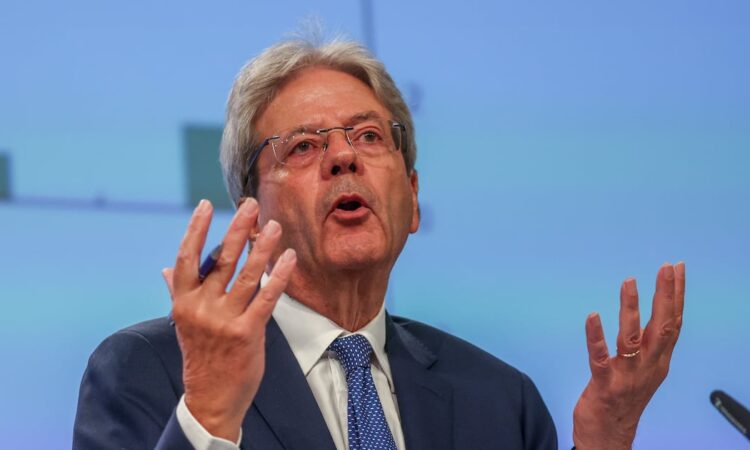EU economy commissioner says Brexit ‘illusion’ becoming clearer for Britain – The Irish Times

The “illusion” that Britain would reap major economic benefits by leaving the European Union has started to fade away, the EU’s commissioner for the economy Paolo Gentiloni has said.
The election of Keir Starmer as prime minister of a new Labour government would provide a platform for closer co-operation between the UK and the EU, particularly on things like security and defence, the commissioner said.
In an interview with The Irish Times, Mr Gentiloni said now is not the time to open “a discussion on the reversal” of Brexit. “I am personally very optimistic of the fact that the new UK government will have an overall more positive attitude towards the EU. Not only because of the fact that Labour was not responsible for Brexit, but also because the lesson learned in the last eight years is very clear.”
Mr Gentiloni, who was prime minister of Italy between late 2016 and 2018, said Britain’s decision to leave the EU was a “big loss”. The senior EU commissioner said as time had passed he felt there was “a lot of regret” from Britain over the decision to leave the union.
The economy commissioner said it was “too soon” to say whether progress might be made to improve any specific post-Brexit trading regulations and rules. “We are all aware of the need for stronger co-operation between the EU and the UK on defence, security, Ukraine etc.”
Ursula von der Leyen needs the backing of a majority of MEPs in a European Parliament vote next week to secure a second term as European Commission president. If the conservative German politician is successful she will then set about building her new team of commissioners for the next five years from names put forward by each national government.
Ireland has nominated former finance minister Michael McGrath, with the Government expected to make a big push to land a finance-related portfolio. The commissioner for the economy, which also covers tax policy, is regarded as one of the more important financial briefs. Ireland’s status as an outlier on corporate tax rates has likely ruled it out of consideration for the position in recent times.
However, there is some speculation that the economy position might be split in a shake-up of roles, with parts of the portfolio responsible for taxation policy moved elsewhere. Does Mr Gentiloni think splitting the job would be a good idea? “Honestly, no.” Having economic and monetary affairs sit together with tax policy in the one role had “proved to be very useful”.
Looking back to the financial crash, he said bailouts of countries such as Ireland had focused on what strings would be attached to the financial support and did not pay enough attention to how to boost growth to help member states get back on their feet. Mr Gentiloni, who comes from the centre-left Democratic Party in Italy, said the EU now has a “more balanced approach”.
Funding raised by the European Commission for member states contributed to a “spectacular recovery” from the Covid-19 pandemic, he said. This scheme was then “readapted” to help countries cope with the energy and inflation crisis caused by the Russian invasion of Ukraine in 2022.
The “wave” of support for extreme right-wing parties at European elections last month that people feared would disrupt the political balance of power in Europe did not materialise as expected, he said.
“Overall I think we have a large majority in the European Parliament of pro-European political positions,” he said. That was not to ignore “pro-Russian” nationalist parties who made up significant “minority” positions in some countries. The best response to the increase in support for extreme right-wing forces was for the political centre to deliver for voters.
Migration should not be used as a political football, as extreme nationalists sought to do, the commissioner said. “All the reasonable political parties should work on the subject without using the subject to trigger hate and division. We have to live with migration; if you look to the labour market it is obvious that we need legal migration.”
He said the EU had made progress managing migration, which, while still featuring during election campaigns, was not the dominant political issue it had been five or 10 years ago.
During his time as Italian prime minister Mr Gentiloni’s government struck a deal with Libya aimed at helping the north African country stop migrants crossing the Mediterranean Sea to Europe. The 2017 agreement was criticised for pushing back asylum seekers into Libyan detention centres, where serious human rights abuses have been documented.
The commissioner said the “awful” situation in Libya had not been created by any migration deals with Europe. The agreement the Italian government had signed had clauses designed to address human rights concerns, in co-operation with the United Nations Refugee Agency. “This work was honestly not sufficiently continued in the following period [due to] different opinions in Italian governments and weaker Libyan authorities.”






